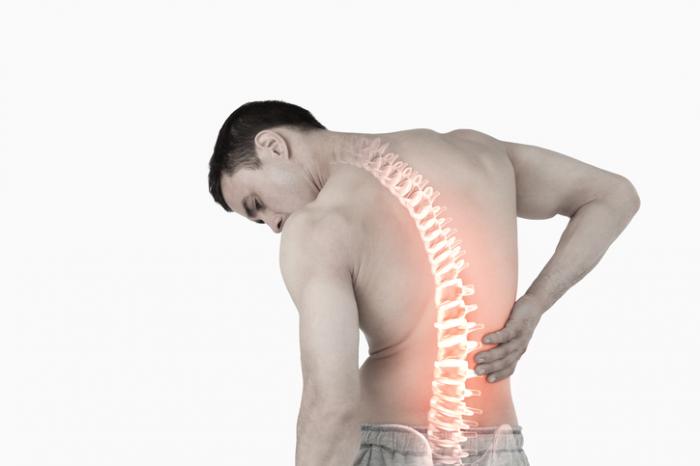Spinal problem treatment In Gwalior: From your lower spine, a number of spinal nerves flow down your legs and terminate in your feet. Foot pain can arise when the nerve roots (portion of the nerve as it exits the spine) of these spinal nerves are inflamed or compressed. Foot pain can also develop if a nerve in your hip, knee, or in your foot is crushed.
This blog gives a list of typical causes of foot pain as well as useful hints to assist you in determining the source of your foot discomfort. Know more about spinal problem treatment In Gwalior.
Foot pain caused by a spinal problem treatment In Gwalior.
Sciatica pain can travel down your leg and into your foot if nerve roots are irritated or compressed in the lumbar or sacral spine (lower back). 1 Compression of the S1 nerve root, often known as typical sciatica, can cause discomfort on the outside of your foot.

- A variety of factors can cause nerve roots to be crushed or inflamed. Typical examples include:
• Lumbar herniated disc: The inner contents of an intervertebral disc leak.
• Lumbar degenerative disc disease: Age-related changes that cause disc narrowing and shrinkage.
• Spondylolisthesis: A vertebra slipping over the one below it.
• Lumbar spinal stenosis: A narrowing of the bone apertures for the spinal nerves and/or spinal cord.
Foot drop is a condition that causes an inability to elevate the front part of your foot or frequent tripping when walking. The L5 nerve root is usually compressed, which causes this disease. Foot drop can also be caused by compression of the L4 and/or S1 nerve roots. Know more about spinal problem treatment In Gwalior.
Foot pain caused by compression of nerves in the hip, knee, or leg
Foot pain can also develop when nerves in the hip, knee, or leg are crushed or injured. As an example:

• Peroneal neuropathy, a condition in which the peroneal nerve is compressed or injured near the knee, may cause foot pain and foot drop when moving your foot. • Sciatic neuropathy, or damage to the sciatic nerve in the pelvic region (hip), may cause foot pain along the top of your foot with some degree of weakness. 7
• Sural nerve entrapment can occur in the leg or around the ankle, causing shooting pain along the outside of your ankle and/or foot. Know more about spinal problem treatment In Gwalior.
A corn may also form on the skin around your toes. Corns form over time as a result of friction and can compress surrounding nerves, producing pain and other symptoms. Morton’s neuroma, a thickening of the tissue around a nerve in the foot, is another probable reason of nerve discomfort in your foot.
Read More:
| What Is A Total Shoulder Replacement? |
| Vertebral Arthritis Risk Factors |
| Hip Arthritis Signs and Symptoms. |
| How to Deal with Persistent Back Pain |

How to identify the source of your foot pain
With so many potential reasons of nerve pain in the foot, determining the actual underlying cause can be challenging. Here are a few helpful indicators to assist you determine the source of your foot pain:
• Foot discomfort following recent injuries to the lower back, hip, knee, or ankle may aid in determining the location of nerve injury. Know more about spinal problem treatment In Gwalior.
• Foot pain caused by nerve root compression or sciatica may be coupled with other symptoms such as buttock, thigh, and leg discomfort, numbness, and/or weakness; and normally affects one leg at a time.

• Foot pain caused by tight boots or shoes may suggest peroneal or sural nerve compression at the knee or ankle. • Foot pain caused by a hip injection or surgery may indicate sciatic neuropathy.
Nerve discomfort in the foot can also be caused by nerve damage caused by systemic illnesses like diabetes or multiple sclerosis.
Twisting, twisting, or a direct strike to your ankle and/or foot may cause foot discomfort by injuring the foot bones, ankle joint, blood vessels, muscles, and/or tendons.
Schedule a visit with your doctor
To accurately determine the source of your foot pain, make an appointment with your doctor. Therapies for foot pain can vary greatly and must be aimed at treating the underlying cause rather than simply concealing the symptoms. A lumbar herniated disc, for example, may necessitate heat therapy and exercise, although a corn on your toe may typically be treated with specific shoes and warm water.

Book Your Consultation
Website: https://tinyurl.com/yyzvwmck
Email: info@klmgrou p.org
Ph: 0751-4000721,Mob: 7804826825
Address: 12, Saraswati Nagar, University Road, Near Silver Estate, Thatipur,
Address Link: https://g.page/r/CQ0WqKLEXPWeEAE

